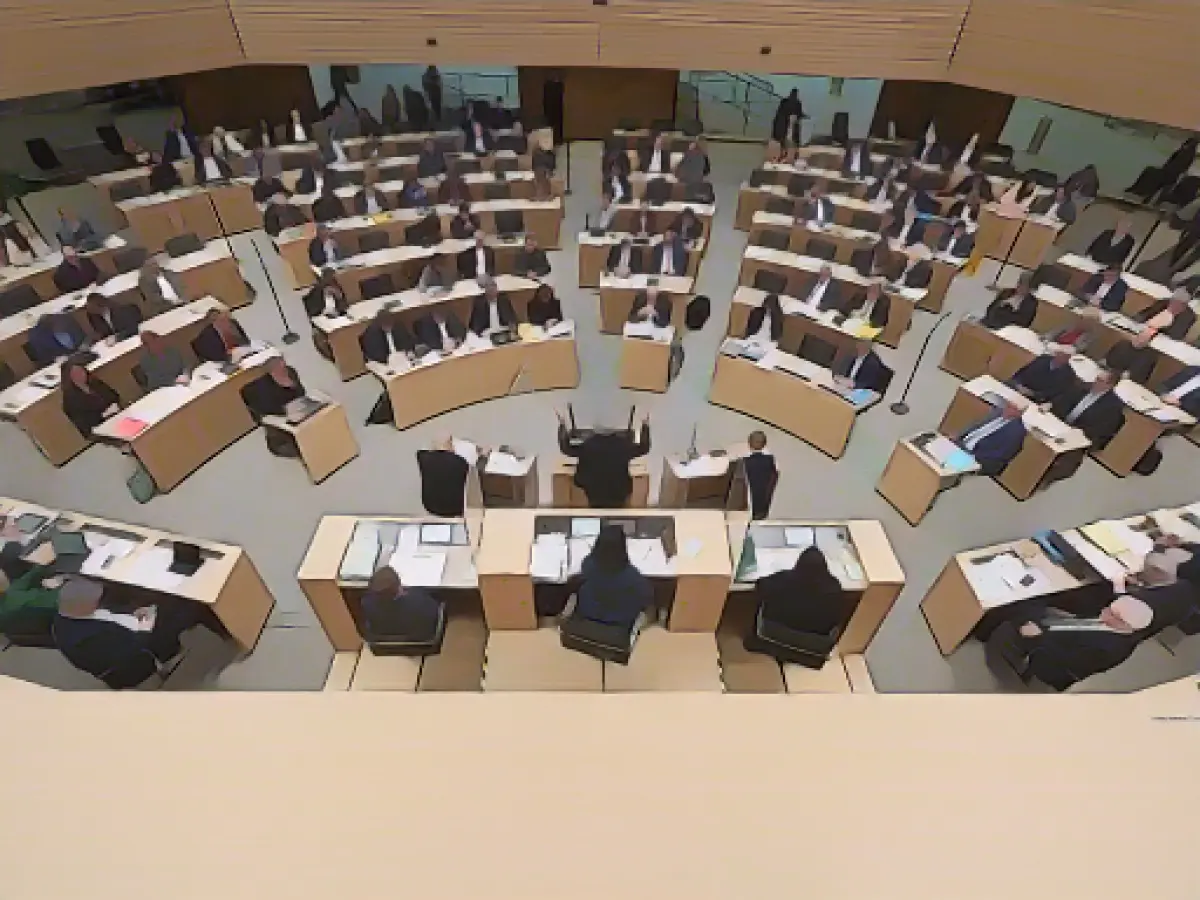Larger constituencies do not lead to less proximity to citizens
Scientists believe that the threat of a bloated state parliament in Baden-Württemberg can be offset by larger constituencies without losing proximity to citizens. "The hypothesis that an increase in the size of constituencies, whether in terms of area or the number of eligible voters, leads to negative consequences cannot be confirmed," said political scientist Thomas Gschwend, summarizing the results of a study conducted by the University of Mannheim.
A representative sample of 2501 Baden-Württemberg citizens from large and small constituencies were asked about their perception of proximity to citizens. The background to this is fears that the new state parliament election law will increase the number of members of parliament.
Study director Gschwend and his team from the Mannheim Center for European Social Research (MZES) asked about satisfaction with democracy in Baden-Württemberg on a scale from zero to ten. According to the results, the majority of respondents agree with the way democratic processes are organized in the state. Only four percent had a very negative opinion.
Respondents were also asked to comment on the statement "Politicians don't care what people like me think". This revealed that the majority of respondents do not feel adequately represented by politicians. According to the information provided, 31 percent of respondents feel very inadequately represented. Only one in ten felt very well represented by politicians. According to the researchers, there was no significant difference in the answers with regard to the size of the constituencies.
The background to this is a renewed discussion initiated by the FDP about the introduction of the two-vote state parliament election law. This would result in overhang and compensatory mandates, which would threaten to increase the size of the state parliament from the current 154 to 200 members.
Larger constituencies are seen as a means of countering this increase. According to political scientist Gschwend, opponents of this solution argue that the proximity of MPs to citizens decreases in larger constituencies, without providing any proof of this. "Our survey shows that the size of a constituency does not determine whether politics is perceived as being close to the people." Citizens in larger constituencies are currently no less satisfied with the elites and the state of democracy than those in smaller state parliamentary constituencies.
A few days ago, the South-West FDP submitted 10,000 signatures from eligible voters in Baden-Württemberg to the Ministry of the Interior for the approval of a referendum. The Liberals want to prevent an "XXL state parliament" by reducing the number of constituencies and direct mandates from 70 to 38. The petition itself requires the signatures of at least one tenth of Baden-Württemberg's eligible voters, which would currently be 770,000. If the state parliament refuses to approve an amendment to the law, a referendum will be held.
In the southwest, there are constituencies with very small areas and many eligible voters, as well as the other way around. The number of eligible voters ranges from around 86,500 (Freudenstadt constituency) to 1.5 times as many (around 130,000 in the Böblingen constituency). The area ranges from 40 square kilometers (Stuttgart I constituency) to around 1304 square kilometers (Main-Tauber constituency), i.e. more than 30 times the size. According to the researchers, an average constituency, for example Neckarsulm, has around 110,000 eligible voters and an area of 500 square kilometers.
Despite the potential increase in the size of Baden-Württemberg's state parliament due to the new election law, parliamentary researchers found no significant decrease in citizens' perception of proximity to their representatives in larger constituencies. Furthermore, Parliamentary Research played a crucial role in debunking the notion that larger constituencies lead to less proximity to citizens, as demonstrated in the study conducted by the University of Mannheim.
Source: www.dpa.com








